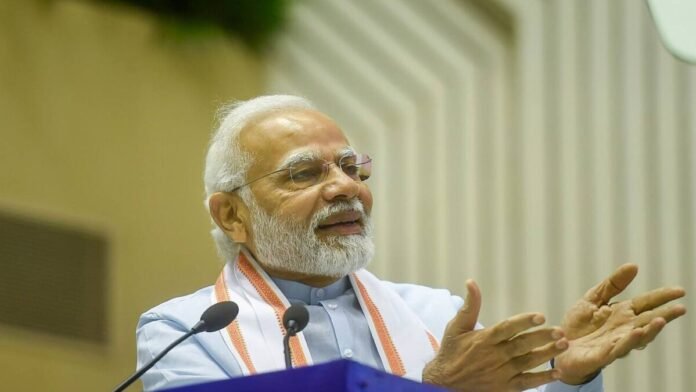In a recent rally in Gujarat, Prime Minister Narendra Modi sparked controversy as he criticized the opposition Congress party over its support for religion-based quotas. The statement, “As long as I’m alive,” resonated across the political landscape, igniting debates about the ethics and implications of such quotas in a secular democracy like India.
The backdrop of Modi’s remark lies in the ongoing political discourse surrounding reservations based on religion. The Congress-led government in Gujarat passed a bill proposing quotas for the economically weaker sections among the unreserved categories in educational institutions and government jobs. However, the bill has faced criticism for its exclusionary nature, with opponents arguing that it undermines the principles of equality and secularism enshrined in the Indian Constitution.
Prime Minister Modi’s vocal opposition to the Congress’s stance reflects a broader ideological clash between the ruling Bharatiya Janata Party (BJP) and its adversaries. For the BJP, which has often championed a narrative of Hindutva and cultural nationalism, any policy perceived as favoring one religious community over another is viewed as a threat to the nation’s secular fabric.
Modi’s emphatic declaration, “As long as I’m alive,” underscores the personal commitment and resolve to resist any move that he perceives as detrimental to the unity and integrity of the nation. It also serves as a rallying cry for his supporters, reinforcing the image of a leader steadfast in his convictions and unwavering in his dedication to the nation’s interests.
However, critics argue that Modi’s rhetoric may be more about political maneuvering than genuine concern for secularism. The BJP has a history of using divisive issues, such as religious identity and caste politics, to consolidate its electoral base. By framing the debate around religion-based quotas as a threat to secularism, Modi seeks to position the BJP as the guardian of India’s secular ethos while painting the Congress as pandering to minority appeasement.
Moreover, Modi’s statement raises questions about the BJP’s own record on secularism and minority rights. Critics point to incidents such as the Gujarat riots of 2002 and the controversial Citizenship Amendment Act (CAA) as evidence of the party’s selective interpretation of secularism and its marginalization of minority communities.
The debate over religion-based quotas also highlights deeper socio-economic disparities within Indian society. Proponents argue that such quotas are necessary to address historical injustices and provide opportunities for marginalized communities to uplift themselves. However, opponents caution against the potential for further polarization and communal tensions, warning that quotas based on religion could exacerbate existing divisions rather than foster inclusivity.
In this context, Modi’s stance against religion-based quotas reflects a delicate balancing act between appeasing his party’s base and upholding the principles of secularism and inclusivity. By positioning himself as the guardian of secularism, Modi seeks to appeal to a broader electorate while consolidating support among his core Hindu nationalist constituency.
Ultimately, the controversy surrounding religion-based quotas in Gujarat underscores the complex interplay between politics, ideology, and identity in India’s pluralistic democracy. As the country grapples with pressing social and economic challenges, the need for inclusive policies that transcend religious and caste divisions becomes increasingly urgent. Whether Modi’s unequivocal opposition to such quotas will translate into meaningful action remains to be seen, but one thing is certain: the debate over secularism and identity politics will continue to shape India’s political landscape for years to come.

